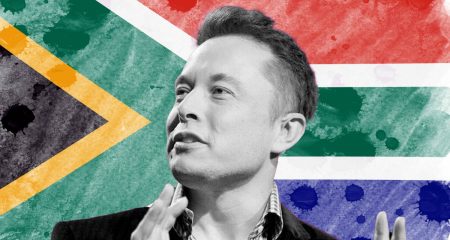
BrandsEye, the South African company that accurately predicted Britons would vote to leave the European Union by monitoring conversations on social media, now forecasts that South Africa’s election on Wednesday will usher in an era of coalition politics.
The record of party mentions on social media platforms, in correlation with their local reference points, implies an ANC share of positive mentions at below 50% in every contestable metro — Cape Town, Tshwane, Johannesburg and Nelson Mandela Bay.
Nationally, the ANC received 41,5% of all positive mentions in the month of July, while the Democratic Alliance and the Economic Freedom Fighters received 36,2% and 22,3% respectively.
“…The picture on social media would seem to suggest the days of their having to share power are suddenly upon us,” BrandsEye said in a statement.
“With unsteady polling to match, disruptive protest activity, and institutional instability within the ruling party, the social media statistics point to a new era in our politics…” it said.
Of course, unlike the UK, a large portion of the electorate in South Africa is not on social media. But an analysis of conversations on Facebook, Twitter and elsewhere could point to impending changes in the country’s metros, where people are more connected, BrandsEye said.
“There is huge negative sentiment online among black social media users toward the ANC in all of the contestable metros, with the ANC only averaging around five percentage points higher in positive mentions as compared to negative mentions concerning those municipalities,” the company said.
Its analysis suggests the ANC will face an “electoral disaster” in the City of Cape Town, with the DA on the cusp of achieving a two-thirds majority. “The bottom seems to have fallen out of any support for the ANC among ‘coloured’ social media users, with huge negative sentiment toward the party within that demographic.”
There is also “startlingly high” positive sentiment for the EFF in virtually every one of the major metros.
“However, this is likely less a signal of a burgeoning voter surge for the EFF (the polls, as unreliable as they may be, seem to be consistent on this point), but rather represents how Julius Malema’s party satisfies an emotional need for protest against ANC failures and corruption. Such sentiment is not going to help ANC voter turnout.”
The fact that the ANC has far outspent opposition parties in its election campaign could, however, have a bearing on election day. It still has an “enormously popular brand”, BrandsEye said. “ And the opposition parties are not without their own flaws and stigmas.”
It can’t be determined how those not on social media, or those who don’t engage in political discourse, might vote. “The polls suggest a massive undecided swing vote, particularly among historic ANC supporters that could yet spring a surprise,” it said.
“On the eve of a watershed election, the most likely result seems to be the further losses of major metros to either the DA outright, or to DA-led coalitions…” — © 2016 NewsCentral Media



